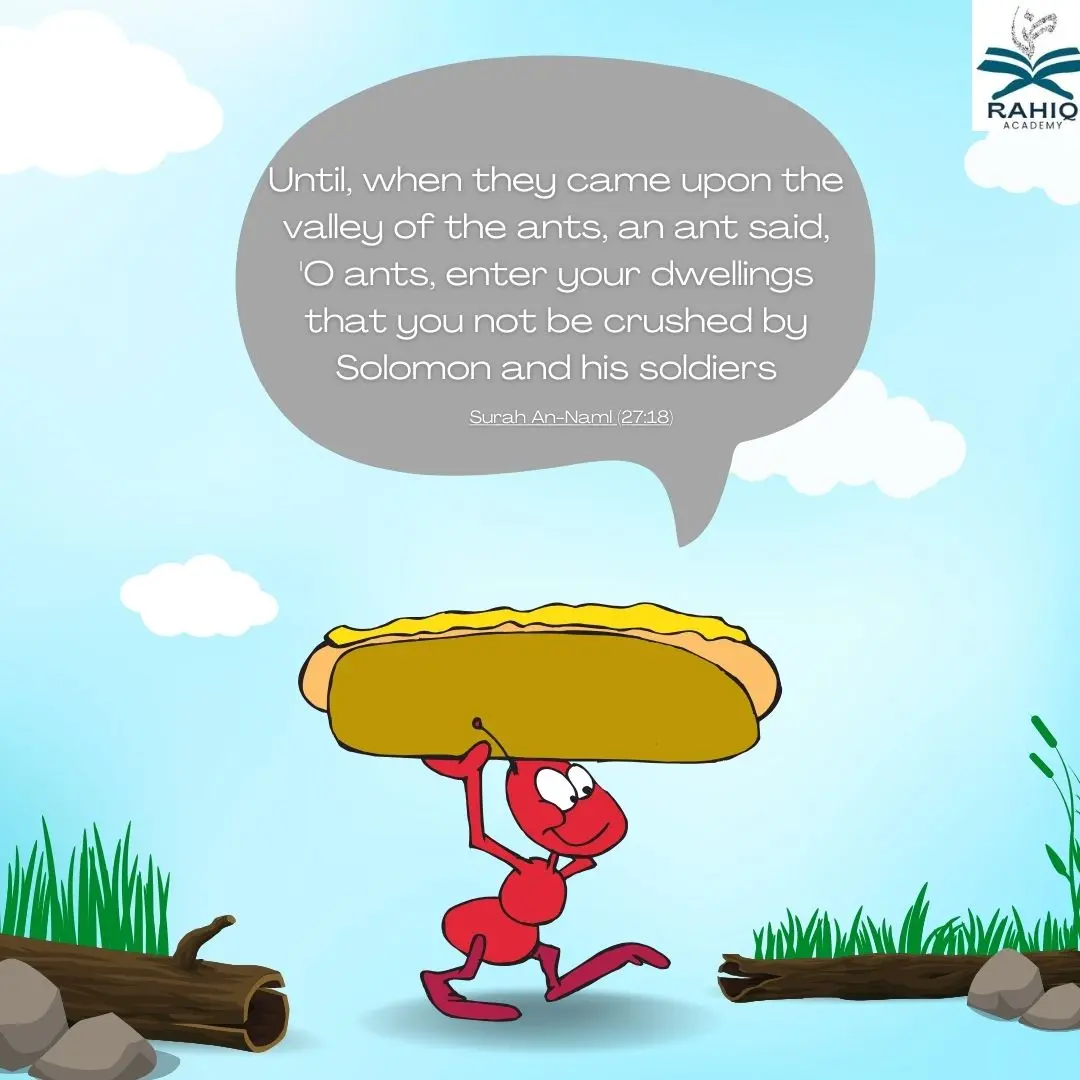Prophet Sulaiman Story (Solomon), peace be upon him, stands as one of the most revered figures in Islamic tradition. Allah endowed him with wisdom, authority, and the unique ability to communicate with both animals and jinn. Extraordinaspite ruling a vast kingdom and wielding tremendous power, Sulaiman demonstrated unwavering humility and reverence for Allah. His life is a testament to the importance of gratitude, responsibility, and the pursuit of justice.
1. Sulaiman Inheritance of Wisdom and Kingship
As the son of Prophet Dawud (David), peace be upon him, Sulaiman was raised in a household rooted in wisdom and faith. From a young age, he demonstrated exceptional insight, which Allah further enhanced as he matured. In Quran, Sulaiman’s keen judgment is demonstrated in a case where two women claimed to be the mothers of the same child.
Sulaiman suggested that the child be divided between them, revealing the true mother, who immediately sought to save her child’s life by relinquishing her claim. This incident displayed Sulaiman’s remarkable ability to discern truth and highlighted his role as a fair and just ruler.
Allah honored Sulaiman by granting him an expansive kingdom and endowing him with wisdom to guide his people. Sulaiman acknowledged these gifts as blessings from Allah and led with humility and justice.
2. Divine Control Over the Wind, Animals, and Jinn
Prophet Sulaiman’s gifts extended far beyond what any other prophet had been granted. Allah allowed him to command the wind, enabling Sulaiman to travel swiftly and conduct his affairs across distant lands.
“And to Solomon [We subjected] the wind – its morning [journey was that of] a month, and its afternoon [journey was that of] a month”
Surah Saba (34:12)
Furthermore, Sulaiman was given the extraordinary ability to understand and communicate with animals. In one remarkable encounter, he conversed with a hoopoe bird, which informed him of the Queen of Sheba’s kingdom, where people worshipped the sun. This ability to understand and interact with animals showcases Allah’s trust in Sulaiman to use these gifts for just causes.
The jinn, a class of beings created from smokeless fire, were also under his command. He assigned them to construct grand structures and perform laborious tasks, including the rebuilding of Masjid al-Aqsa in Jerusalem. This special dominion over the jinn emphasized Sulaiman’s unique position, as he wielded authority over both the seen and unseen realms.
3. Rebuilding of Masjid al-Aqsa

One of Prophet Sulaiman’s most significant accomplishments was the rebuliding of Masjid al-Aqsa, located in Jerusalem.
Masjid al-Aqsa holds immense spiritual significance in Islam as one of the holiest sites, and Sulaiman’s efforts in its restoration reflect his commitment to maintaining sacred places of worship.
Sulaiman enlisted the help of the Jinn in rebuilding this grand structure, resulting in an awe-inspiring place dedicated to the worship of Allah. The construction of Masjid al-Aqsa symbolizes Sulaiman’s devotion to Allah and his dedication to fostering environments where people could come together in worship. His efforts underscore the importance of preserving religious sites, ensuring that they continue to be places of inspiration and connection for generations to come.
4. The Lesson of the Ants

One day, as the Prophet Sulaiman army marched through a valley, he overheard an ant cautioning others to take shelter to avoid being trampled by the soldiers. Allah had granted Sulaiman the ability to understand this plea, and he responded with a smile, thanking Allah for this gift and commanding his army to proceed with care.
“Until, when they came upon the valley of the ants, an ant said, ‘O ants, enter your dwellings that you not be crushed by Solomon and his soldiers while they perceive not.’ So he smiled, amused at her speech, and said, ‘My Lord, enable me to be grateful for Your favor which You have bestowed upon me and upon my parents and to work righteousness of which You approve'”
Surah An-Naml (27:18-19)
حَتَّىٰٓ إِذَآ أَتَوْا۟ عَلَىٰ وَادِ ٱلنَّمْلِ قَالَتْ نَمْلَةٌۭ يَـٰٓأَيُّهَا ٱلنَّمْلُ ٱدْخُلُوا۟ مَسَـٰكِنَكُمْ لَا يَحْطِمَنَّكُمْ سُلَيْمَـٰنُ وَجُنُودُهُۥ وَهُمْ لَا يَشْعُرُونَ فَتَبَسَّمَ ضَاحِكًۭا مِّن قَوْلِهَا وَقَالَ رَبِّ أَوْزِعْنِىٓ أَنْ أَشْكُرَ نِعْمَتَكَ ٱلَّتِىٓ أَنْعَمْتَ عَلَىَّ وَعَلَىٰ وَٰلِدَىَّ وَأَنْ أَعْمَلَ صَـٰلِحًۭا تَرْضَىٰهُ
This story illustrates Sulaiman’s humility, as he acknowledged Allah’s blessings even in such a small, seemingly trivial moment. His respect for all creatures, no matter how small, is a profound lesson in compassion and gratitude.
5. Meeting with Queen of Sheba
Queen of Sheba, known as Bilqis, is one of the most significant figures in Prophet Sulaiman story. When the hoopoe bird informed Sulaiman that Bilqis and her people worshipped the sun, he decided to invite her to monotheism. Sulaiman sent her a letter urging her to submit to the worship of Allah alone.
To test her wisdom and sincerity, Sulaiman arranged for her throne to be transported to his court before she arrived. Upon seeing her throne, Bilqis was astonished by Sulaiman’s power and acknowledged the greatness of Allah, ultimately accepting Islam.
“She was told, ‘Enter the palace.’ But when she saw it, she thought it was a body of water and uncovered her shins. He [Sulaiman] said, ‘Indeed, it is a palace [whose floor is] made smooth with glass.’ She said, ‘My Lord, indeed I have wronged myself, and I submit with Solomon to Allah, Lord of the worlds'”
Surah An-Naml (27:44)
قِيلَ لَهَا ٱدْخُلِى ٱلصَّرْحَ فَلَمَّا رَأَتْهُۥ حَسِبَتْهُۥ لُجَّةًۭ وَكَشَفَتْ عَن سَاقَيْهَا ۚ قَالَ إِنَّهُۥ صَرْحٌۭ مُّمَرَّدٌۭ مِّن قَوَارِيرَ ۗ قَالَتْ رَبِّ إِنِّى ظَلَمْتُ نَفْسِى وَأَسْلَمْتُ مَعَ سُلَيْمَـٰنَ لِلَّهِ رَبِّ ٱلْعَـٰلَمِينَ
This event demonstrates Sulaiman’s ability to guide others to Allah through wisdom and respect. His approach to inviting Bilqis to Islam was thoughtful, respectful, and ultimately led to her acceptance of faith.
6. The Lesson of Prophet Sulaiman Passing
Prophet Sulaiman life and achievements were a test of his humility and gratitude. Quran recounts the extraordinary moment of his passing as a reminder of Allah’s absolute control over life and knowledge.
Sulaiman passed away while leaning on his staff, and his death went unnoticed by the jinn, who continued to work, believing he was still observing them.
“And when We decreed for him death, nothing indicated to them his death except a creature of the earth eating his staff. But when he fell, it became clear to the jinn that if they had known the unseen, they would not have remained in humiliating punishment”
Surah Saba (34:14)
فَلَمَّا قَضَيْنَا عَلَيْهِ ٱلْمَوْتَ مَا دَلَّهُمْ عَلَىٰ مَوْتِهِۦٓ إِلَّا دَآبَّةُ ٱلْأَرْضِ تَأْكُلُ مِنسَأَتَهُۥ ۖ فَلَمَّا خَرَّ تَبَيَّنَتِ ٱلْجِنُّ أَن لَّوْ كَانُوا۟ يَعْلَمُونَ ٱلْغَيْبَ مَا لَبِثُوا۟ فِى ٱلْعَذَابِ ٱلْمُهِينِ
This event emphasized that only Allah possesses complete knowledge and power. It served as a reminder to the jinn and to all of Allah’s ultimate authority.
Conclusion
The Prophet Sulaiman story exemplifies the essence of humility, justice, and gratitude. Despite his vast powers, Sulaiman recognized that everything he had was a gift from Allah, to be used for good. His life encourages us to live with integrity, respect all of Allah’s creations, and approach our blessings with gratitude. Sulaiman’s legacy is a timeless lesson that true success lies in obedience to Allah and in the responsible use of the gifts He has provided.
For more educational curricula for children, join Rahiq Academy We offer Arabic language and Quran courses, especially for children.




